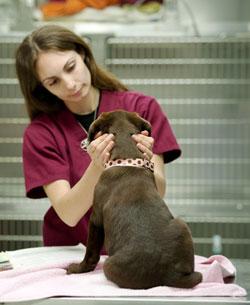
This article is inspired by a recent 4-H Vet club talk.
It’s the dose that makes the poison and anything can become toxic. Something seemingly safe like water has a very wide safety margin, but it can be overdosed. Other drugs have very narrow ranges of safety, such as Digoxin, a heart medication. Drugs at the appropriate dose have benefits, but if you exceed the appropriate dose, you create toxicity.
You may have noticed “LD50” on household products. This is the lethal dose, the amount of a toxic agent (as a poison, virus, or radiation) that is sufficient to kill 50 percent of a population of animals.
Different species metabolize drugs differently, mainly because they are divided into different groups based on the way their bodies process food:
- horses are hindgut fermenters
- cows, goats and sheep are foregut fermenters
- cats, dogs and pigs are carnivores and omnivores respectively
Just because the animal kingdom likes to keep vets on their toes, there are also individual differences in toxicity between goats and sheep, as well as between cats and dogs, to name a few.
We have listed some of these toxins in previous articles, but here are some examples on farm and in the home:
- Human medications
- Tylenol is fatal to cats
- Table food
- Certain plant species
- Lilies – cats only
- Heavy metals
- lead, copper, zinc and mercury
- These can be mixed accidentally into livestock feed or be present in contaminated water
- Household chemicals
- Anti-freeze
- Rat poison
- Fungus
- For example, moldy corn has additive toxins when mixed in a pig’s feed
The list above contains items that can lead to toxicity by ingestion, but there is also a potential for toxicity from topical exposure, as well as inhalation. Insecticides applied to lawns can be absorbed through the skin or respiratory tract. Household cleaners can be hazardous to pets if they are exposed through direct contact on their paws or through inhalation of the fumes.
As mentioned above, even veterinary medications can be toxic if they are applied incorrectly or at the wrong dose. A common incident involves applying topical flea and tick products, which are insecticides, on a cat instead of a dog as prescribed. Coccidiostats are a medication intended for cows and small ruminants, but if a dog eats it, it could be fatal.
The take-home message is that it is very important to read drug labels carefully and follow the instructions to the letter. If an animal is exposed to a possible toxin, it is best to call a vet ASAP and reference Pet Poison Helpline .
Talk to one of our team members at Mitchell Veterinary Services or Pauly Veterinary Clinic if you have any questions or concerns.
